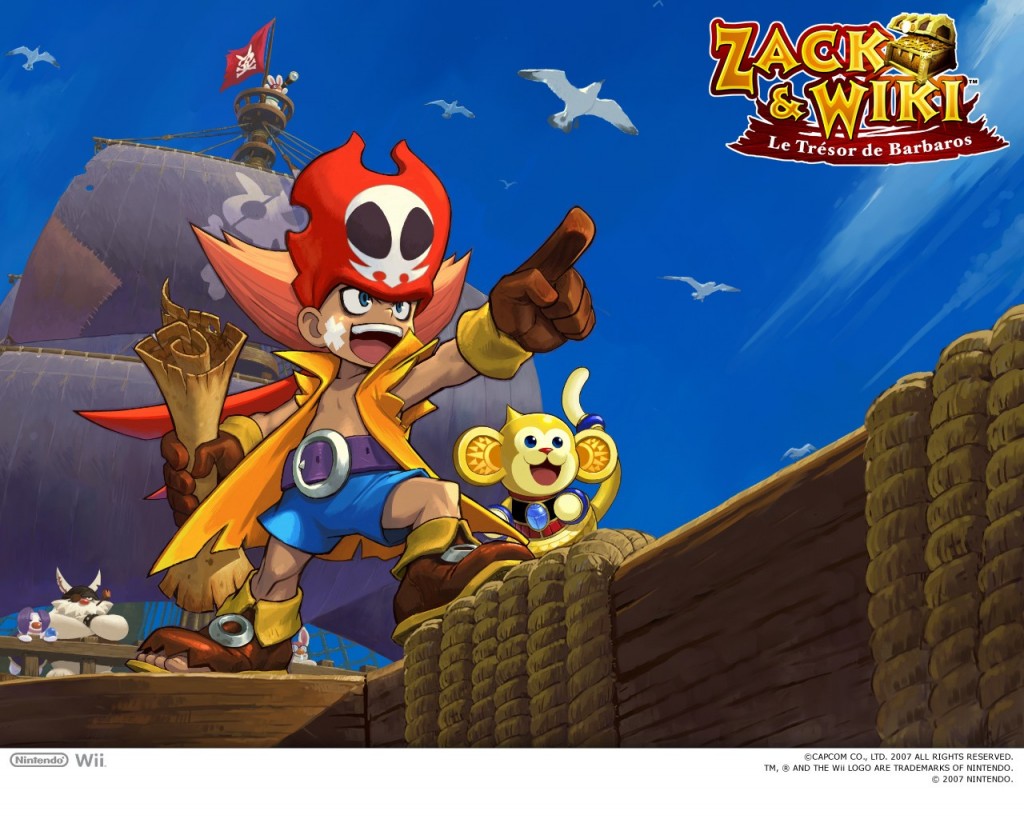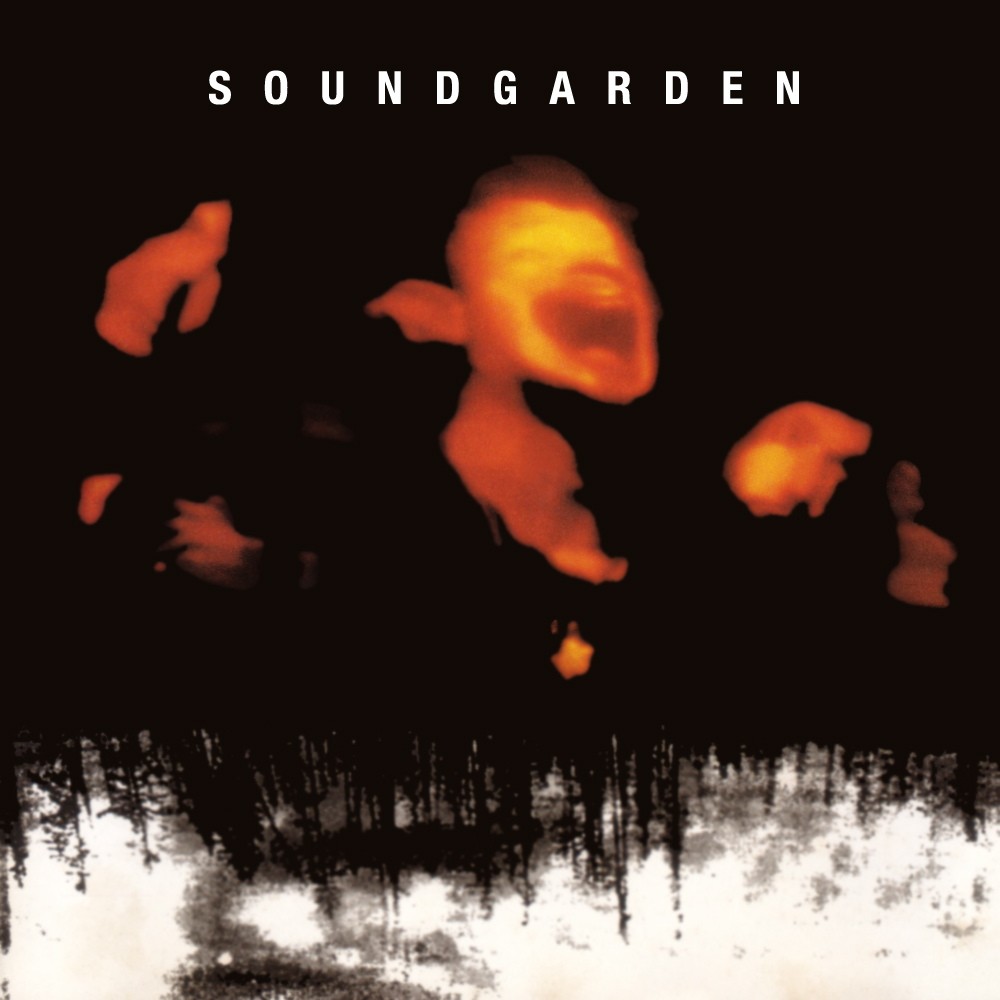Last updated on December 6, 2012
Welcome to yet another Monday Update, which people won’t tell me whether they like it or not (the site ranking tend to tell me “no”).
Zack and Wiki: Quest for Barbaros’ Treasure – Honestly, this game couldn’t have existed without the Wii.
See, adventure games and their ilk haven’t been easy to port onto consoles. There’s no real equivalent to the mouse and keyboard control scheme, and this may be why I’ve had a suspicious lack of exposure to said adventure games. This, then, makes Zack and Wiki a special occassion – it’s a bonafide adventure game with all the similar trappings. However, because it was designed by Capcom, a host of Japanese game trends come into play which make me happy beyond measure. Finally, a console adventure game I can understand that bridges the gap.
For instance, instead of one long puzzle, the game’s divided into distinct stages. Each has a central goal – get the treasure, befitting the obvious pirate theme of the game – and that focus means observation of your surroundings and proper use of your abilities is critical. You point and press the A button to send Zack where you want to go. Zack can only pick up objects and use objects in the environment, which means the solution (with any luck) becomes obvious. There’s some creative use of the Wiimote, as some objects need to be rotated in order to see their use, or placed in a particular way. Still, just solving the puzzle doesn’t mean you win – some parts of the game impose time limits, or require vigorous timed Wiimote shaking in specific ways. All of these are fun and add to the tension of success. That’s a problem I’m had with some adventure games – the pace, though deliberately slow, never really places you in any kind of mortal danger. Zack and Wiki bucks that trend to my enjoyment.
Furthermore, the game has a rudimentary scoring system for finding everything in a particular level – while I’m sure this doesn’t actually mean anything (because everyone has the exact same score if they comb the stage enough), it’s satisfying to see huge numbers pop up when you’ve figured out the next part of a particularly tricky section. This works because the game doesn’t hold your hand – after the tutorial, you rarely see hints or reminders to use certain abilities unless you buy those hints from the in-game store. I haven’t used it yet, nor have I picked up any extra lives. I would recommend playing the game that way, as it works best when you’re punished for pushing a button too early, or solving parts of the puzzle out of sequence. Of course, those elements rarely find use, but I doubt anyone could possibly get stuck – there’s no pixel hunting here for that ONE object you need to click.
I can see why this game did not sell very well – the melding of Western and Eastern design surely rubbed many people the wrong way (and the shirtless protagonist probably doesn’t help, either). PC adventures fans probably scoff at its relative simplicity, while console gamers were exasperated by the lack of analog movement, I’m sure. It looks like a platformer in the vein of Mario, not a point-and-click puzzle solver. Still, it was worthy of more than just good word-of-mouth and critical reception. I found it for less than ten dollars, and that’s just a shame.
Soundgarden – In the early 1990s, there was grunge. And it was, for the most part, good.
Not that I had any part in that. I wasn’t even cognizant of music trends until sometime in the mid-2000s, not that I much cared. Thanks to Guitar Hero and Rock Band, I’ve been a big fan of the good ol’ rock’n’roll for quite a few years now. Thus, I have the benefit of seeing many genres of popular music come and go. I can evaluate a great deal of the material based on its own merits, rather than its popularity.
So, back to grunge – it’s not so much a musical form as it is a style that came out of the Pacific Northwest. It represented a shift from the 1980s’ obsession with synthesizers and hair metal (I really question what people were thinking back then; did they even know it was reaching the point of self parody?) to something more real, raw, and passionate. That goes for the music, the lyrics, and just about everything else associated. At first it was underground, but there soon arose four bands that stood head over heels above all other: Nirvana, Alice in Chains, Screaming Trees, and Soundgarden. I guess if you want you could smash Pearl Jam in there, but I don’t like Eddie Vedder so whatever. Evenflow’s a good song!
Anyway, most people would certainly pick either of the first two: Nirvana, with its catchy hooks and Cobain fun, and Alice in Chains, with its razor sharp and crunchy repetitive riffs and Layne Stanley banshee wail, were the two everybody remembers. The other two get less clout in terms of history, but both of them were exemplary rock bands. AiC was always metal; Nirvana, for all it rock sensibilities, firmly places itself in the category of pop. The Screaming Trees and Soundgarden, however, were genuine rock bands. They took trends from the past and reignited them instead of creating new genres; they’re like the fine wine of grunge, if I do say so myself. I still like Mark Lanegan, Screaming Trees’ most well-known member who went onto a career in dark solo work and Queens of the Stone Age, and their complex rhythyms and songwriting set them ahead of the curve…perhaps too far ahead.
On the other hand, you had Soundgarden. Just hearing their first album to their magnus opus Superunknown (pictured above), one sees a definite evolution from post-hardcore punk band with driving beats to an epic rock band infused with elements of psychedelia, metallic riffs, and excellent songwriting. Their willingness to experiment with the rock sound makes them unique even today. Chris Cornell’s vocals, almost like the Jimmy Page of the modern age, captured an audience even today; Kim Thayil’s off-beat and discordant/melodic guitar work define the Soundgarden sound to a tee. It’s not uncommon to experience whiplash in a Soundgarden albums; they go all over the place with pacing, and songs range from fast to slow to something akin to a ballad. Plus, the albums are mixed well (the later ones, anyway!) and each band member gets the spotlight. I haven’t heard anything this unique, and I have a LOT of rock music.
So yeah, gushing about Soundgarden and all that. I just really like Chris Cornell. Just go pick up a copy of Superunknown and thank me later.
———————————————————————————————————————————————————————————————————————–
That’s it for Monday Update and grunge…oh, wait.


